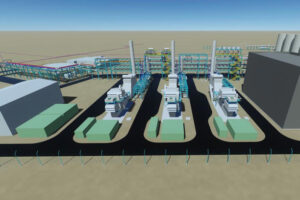Lab-grown meat needs green energy ‘revolution’ to reduce emissions
There needs to be a green energy ‘revolution’ before lab-grown meat becomes an effective replacement for cattle meat as the world looks to reduce methane emissions from farming, a new study has found.
A study by the LEAP (Livestock, Environment and People) programme at the Oxford Martin School, part of Oxford University, found that replacing cattle with cultured meat may actually increase global warming in the long-term if energy systems continue to rely on fossil fuels.
Instead, researchers must find better ways of producing lab-grown meat to ensure it delivers climate benefits, the study concluded.
‘There has been a great deal of public interest in cultured meat recently, and many articles highlight the potential for substituting cattle beef with cultured meat to provide an important climate benefit,’ explains lead author of the study Dr John Lynch.
‘We show that it is not yet clear whether this is the case, partly because of uncertainties about how cultured meat would be produced at scale. An important issue in comparing farmed and cultured beef is that the different warming impacts of greenhouse gases are also not well accounted for in the standard measure used in carbon footprints.’
The study, published in the journal Frontiers in Sustainable Food Systems, projected the amount of emissions associated with three current cattle farming methods and four possible methods of cultured meat over the next 1000 years, assuming that energy systems remain unchanged.
The study found that without a large-scale transition to decarbonised energy, current proposed types of lab-grown meat may have some advantages compared to cattle farming in the short-term but could in fact lead to higher global temperatures in the long run.
This is because current ‘labriculture’ methods will increase levels of carbon dioxide, which persists in the atmosphere far longer than the methane from cattle, which impacts global warming far more in the short-term but only persists for a few decades.
This led the study’s authors to conclude that cultured meat’s impact on climate change will actually depend on how much energy it requires and on the availability of low-carbon energy sources in the future.
‘This is important because while reducing methane emissions would be good – and an important part of our climate policies – if we simply replace that methane with carbon dioxide it could actually have detrimental long-term consequences,’ Lynch warned.
‘The climate impacts of cultured meat production will depend on what level of sustainable energy generation can be achieved, as well as the efficiency of future culture processes.’
Greenhouse gas emissions associated with agriculture are responsible for around a quarter of current global warming, hence why lab-grown meat has been touted as a possible solution.
Policy-makers worldwide are currently looking for ways to reduce global meat consumption as well as ways to improve current meat production methods.
According to the animal welfare charity Viva!, a global switch to diets that rely less on meat and more on fruit and vegetables could save eight million lives by 2050 and reduce greenhouse gas emissions by two thirds.















